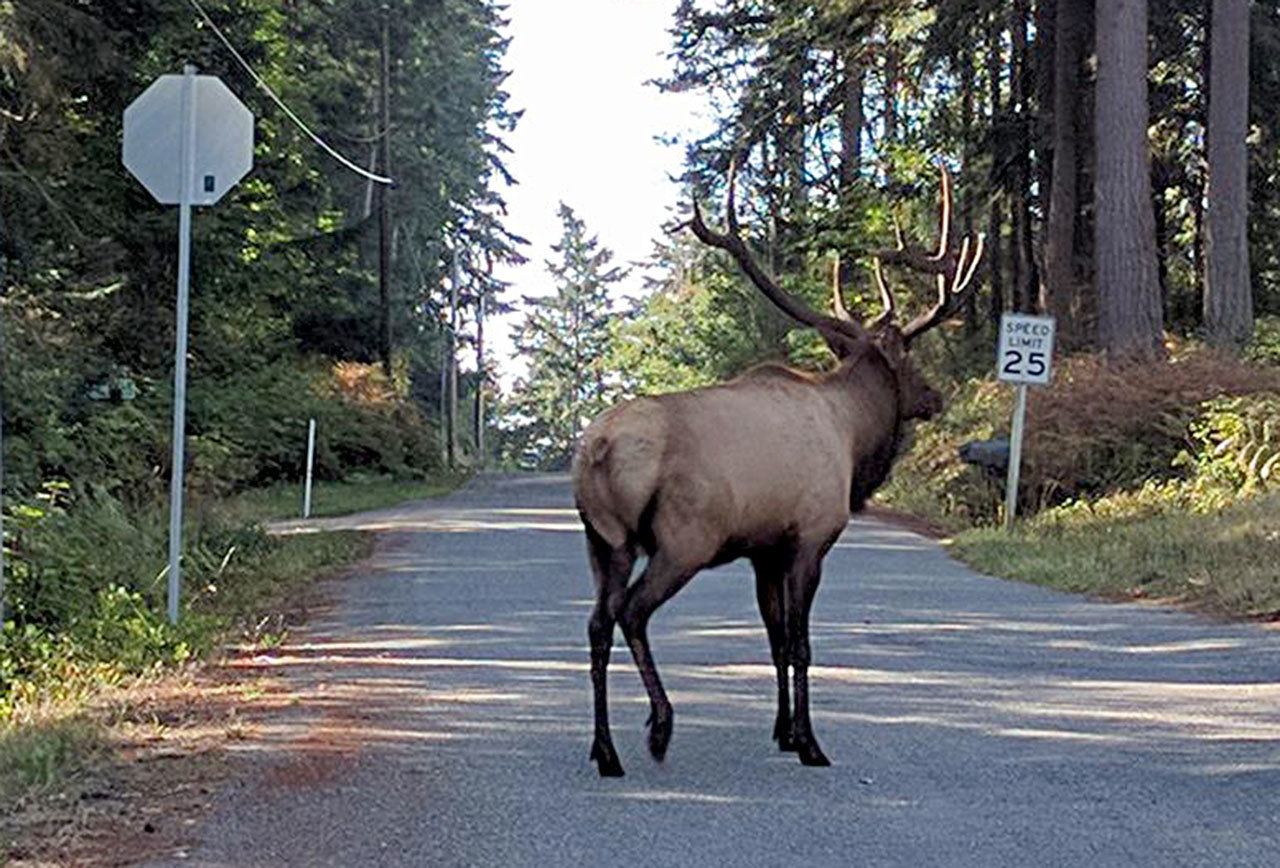Whidbey Island’s lone elk is all tuckered out and preparing to settle in for the winter.
It seems all those high-charged hormones during rut season and not having a mate so nature can to take its course made for another frustrating fall for the majestic animal.
State Fish and Wildlife enforcement officer Ralph Downes said he can’t count the number of times he’s been asked if the state would consider bringing a female companion to the island for the lonely bull, which arrived on rural North Whidbey in 2012.
The elk is the only one of its kind known to be living on the island.
“I hear it all the time,” Downes said.
“The common thought process is, ‘You need to get him some company, or if you’re not going to give him some company, you need to get him to where he belongs. It’s not fair to leave him alone.’”
“I think, legitimately, the department considered that for about 35 seconds and realized we certainly aren’t going to bring him company,” said Downes.
Such a move would certainly bring greater responsibility for the actions of Bruiser — the name given to the lonely elk by protective Strawberry Point residents — as well as any possible mate or offspring.
“Bruiser made it all the way over here all by himself,” said Downes, who’s long theorized he swam across Skagit Bay, breaking off from a sizable herd in the Skagit Valley.
“Yes, he is wild, and by the nature of the (hunting) seasons, he’s protected (on Whidbey),” Downes said.
“If the department were to import elk to keep him company, then we would be directly responsible for anything those elk might do.”
One of the concerns is potential crop damage, Downes said.
Elk haven’t roamed Whidbey since the early 1900s, according to Downes. Bruiser’s arrival is curious as is his interest in remaining on the island.
“I think it’s real clear to him that he knows it’s a helluva swim,” Downes said.
“For whatever reason, he doesn’t want to do it.”
Elk are powerful swimmers, Downes said, noting it could be the mud in the shallows that’s stopping him.
“If it was merely a case of swimming across the Columbia River to get to the other side, I think he would’ve swam a long time ago.”
For now, Bruiser appears to be content to graze on what’s available and in getting ready to hunker down for the winter.
He lost about 100 pounds in recent months, which isn’t unusual during the rut season. He remains a healthy speciman, weighing in at about 600 pounds, Downes said.
Hunting elk is illegal on Whidbey, but there’s been no protection from people using questionable tactics to lure the elk for a closer look.
Residents around Strawberry Point reported hearing artificial cow calls and observed the elk’s associated behavior, Downes said.
Downes said he understands why people might want to catch a glimpse of the elk, but not their methods that put unnecessary stress on the animal.
“It just adds insult to injury,” he said.
For four years, the elk has lived on Whidbey’s north end without any significant disruption to people, aside from tangling with the occasional five-gallon bucket or yard ornament.
It’s this time of year, after the rut period, that it tends to take out a few final frustrations on inanimate objects, Downes said.
“It’s during the next couple of months that it sheds it antlers that I expect him potentially to chase down a couple of yard gnomes,” Downes said.



